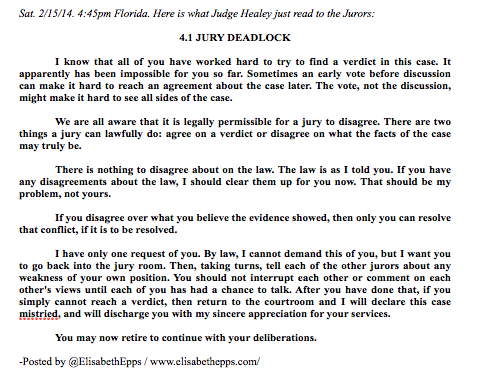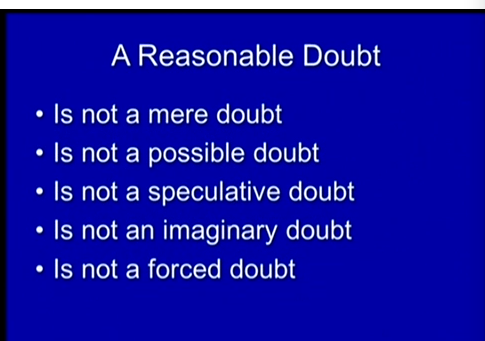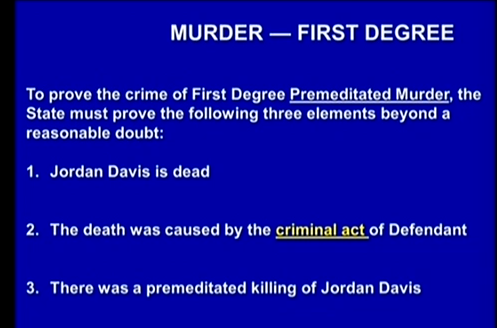Off-duty cop “Road Rage” 911 call: “I had to fire my weapon.”
NJ police officer Walker recounts to 911 his shooting of Joseph Harvey, Jr....
Andrew F. Branca is in his third decade of practicing law in the Commonwealth of Massachusetts. He wrote the first edition of the "Law of Self Defense" in 1997, and is currently in the process of completing the fully revised and updated second edition, which you can preorder now at lawofselfdefense.com. He began his competitive shooting activities as a youth in smallbore rifle, and today is a Life Member of the National Rifle Association (NRA) and a Life Member and Master-class competitor in multiple classifications in the International Defensive Pistol Association (IDPA). Andrew has for many years been an NRA-certified firearms instructor in pistol, rifle, and personal protection, and has previously served as an Adjunct Instructor on the Law of Self Defense at the SigSauer Academy in Epping, NH. He holds or has held concealed carry permits for Massachusetts, Connecticut, Rhode Island, New Hampshire, Maine, Pennsylvania, Florida, Utah, Virginia, and other states.
NJ police officer Walker recounts to 911 his shooting of Joseph Harvey, Jr....
Eyewitness Adam Pidel recounts to 911 the intent of Joseph Dean Harvey, Jr. to fight Walker on side of road -- "But a gun? A bit much."...
Since Alexander was last sentenced, Florida law seems to lean toward mandatory consecutive sentencing under "10-20-Life"...
Walker defense attorney seeks dismissal of first degree murder indictment of Walker...
Zimmerman redux: Police officer having head beaten into sidewalk by unarmed attacker draws his pistol, kills attacker...
The shooter was black and the victim white, but there's a big legal difference from Zimmerman and Dunn: In Maryland there is a legal duty to retreat....
The law is supposed to solve problems, not create them. Laws should provide as much clarity as possible, not expand the realms of ambiguity and subjectivity. Laws ought to bring about the practical results their promoters claim they'll achieve.With a lead-in like that, surely he's about to call for the repeal of the Affordable Care Act, right? Just kidding--it is, after all, the Washington Post. Instead, Dionne has decided to call for the repeal of another law about which he patently knows nothing: "Stand-Your-Ground."
Supporters of the law say it was technically not at issue in the case, but this overlooks the obvious role it played in the trial.And where do we find this "obvious role" for SYG in the Dunn trial? It was mentioned in a single passing sentence--that would be ONE sentence--with no particular emphasis by defense counsel Cory Strolla in his closing argument. One mention over the course of two weeks of jury voir dire opening statements, day after day of trial, and closing arguments. One. Mention.
Juror #8, Creshuna Miles: Dunn acted in self-defense until he fired at fleeing SUV...
Dunn's actions in fleeing the scene and failing to contact police all pointed to a "guilty mind"...
A juror from the "loud music" murder trial of Michael Dunn for the shooting death of Jordan Davis became the first to speak with the press, on this evening's episode of Nightline. (Video of this interview is embedded at the bottom of this post.) The juror...
Law Professor pundits confuse general principles of self-defense law with Stand Your Ground, and contribute to the confusion....
Andrew Branca discusses Loud Music Murder Trial on Teri O'Brien Show...
 ("Loud music" murder trial "Allen" charge.)[/caption]
UPDATE (2-15): 9:50AM Jury questions:
(1) Is the defense of self-defense separate for each person in each count? A: "Yes."
(2) Are we determining if deadly force is justified against each person in each count? A: "Yes."
(3) Or if we determine deadly force is justified against one person, is it justified against others? A: "No. Self defense and justifiable use of deadly force applies separately to each count."
UPDATE (2-15): 9:00AM Court came briefly into session. Jury was starting deliberations only now, or within a few minutes. Court in recess until they hear something from the jury. Keep eyes here for breaking news.
UPDATE (2-15): 8:38AM Can hear audio techs in court room 406, "Test 1, 2." No video yet.
UPDATE (2-15): 8:30AM Judge Healey is expected to pro forma bring the court into session at 9:00AM, but it was anticipated that the jury would already be in deliberations by that time. We're here covering the court live, all day.
UPDATE (2-14): 6:50PM Jury requests to be dismissed for the night, saying they have "hit a wall for tonight." Judge allows, no objection. He thanks jury, says he'll let THEM decide what time to start tomorrow. Healey suggests, 9:00, 9:30, and one juror responds, "7:00". The court room breaks into laughter. Healey decides jury can arrive when they wish, he'll be there but rest of court need not, at 9:00AM he'll call court into session and announce what time the jury actually started, just so everyone knows. That's it for tonight, folks.
UPDATE (2-14): 6:40PM Several of Dunn's jail house phone recordings--the cause of so much pre-trial litigation over "open records" disputes with the media--have just been released. These include:
("Loud music" murder trial "Allen" charge.)[/caption]
UPDATE (2-15): 9:50AM Jury questions:
(1) Is the defense of self-defense separate for each person in each count? A: "Yes."
(2) Are we determining if deadly force is justified against each person in each count? A: "Yes."
(3) Or if we determine deadly force is justified against one person, is it justified against others? A: "No. Self defense and justifiable use of deadly force applies separately to each count."
UPDATE (2-15): 9:00AM Court came briefly into session. Jury was starting deliberations only now, or within a few minutes. Court in recess until they hear something from the jury. Keep eyes here for breaking news.
UPDATE (2-15): 8:38AM Can hear audio techs in court room 406, "Test 1, 2." No video yet.
UPDATE (2-15): 8:30AM Judge Healey is expected to pro forma bring the court into session at 9:00AM, but it was anticipated that the jury would already be in deliberations by that time. We're here covering the court live, all day.
UPDATE (2-14): 6:50PM Jury requests to be dismissed for the night, saying they have "hit a wall for tonight." Judge allows, no objection. He thanks jury, says he'll let THEM decide what time to start tomorrow. Healey suggests, 9:00, 9:30, and one juror responds, "7:00". The court room breaks into laughter. Healey decides jury can arrive when they wish, he'll be there but rest of court need not, at 9:00AM he'll call court into session and announce what time the jury actually started, just so everyone knows. That's it for tonight, folks.
UPDATE (2-14): 6:40PM Several of Dunn's jail house phone recordings--the cause of so much pre-trial litigation over "open records" disputes with the media--have just been released. These include:
12/3/12: Dunn's call with father about legal options
12/5/12: Dunn's calls with fiancee & his parents
12/26-27/12: Michael Dunn calls to Rhonda Rouer
UPDATE (2-14): 5:00PM Two questions from the jury. First question involves getting a 30 minute break, Healey of course says yes. Second question more substantive: Is it permissible for them to agree on several of the charges, but not on other of the charges. Answer is also yes. Verdicts would be rendered on the ones where unanimous agreement, the others would be hung, and State could re-prosecute on any hung charges at their discretion. (As a reminder, there are five indicted charges--Murder 1, three counts of attempted Murder 1, and hurling missiles. Also the jury is free to consider all lesser included charges.) UPDATE (2-14) 9:00AM Court in session. Discussion in court about simply sending jury straight into deliberations, no formal morning greeting in court. Healey: "This is a working group." Also announced that people will no longer be able to sit in the court room during recess while jury deliberations going on. People have said it might be possible for people in court room to hear talking from jury deliberations, and vice versa. So 5 minutes before reconvene will allow people back into court room. Healey: "Happy Valentines Day to everybody, we'll see you all when we get some word from the jury." Court recessed. UPDATE (2-14): 8:00AM The jury is scheduled to return to deliberations at 9:00AM. We'll be covering the events in the court room all day, real-time, right here at this post on Legal Insurrection. UPDATE (2-13): 6:20PM That's it for tonight, no jury decision yet, we start again at 9:00AM US EST tomorrow. Legal Insurrection's live-coverage will be AT THIS PAGE, so bookmark to come back. UPDATE (2-13): 4:30 Court back in session. Jury asking when letter exhibit #201 written? One of Dunn's jail house letters. Court looks through transcript, identifies as June 2013. This is the "Black Friday" letter, though obviously not written that date. Jury now retiring back to jury room. Healey tells all four alternates they'll be held overnight tonight, but tomorrow can be sequestered in hotel room rather than in court house, more comfortable for them. Update (2-13): 2:25PM Jury reports that one set of jury instructions is missing pages 32-41. (Holy cow, that's a lot of instructions.) Weighing the evidence, defendant's statements, rules for deliberations, cautionary instructions, verdict, submitting case to the jury, not substantive discussions. We didn't change any of these from the model instructions. Just sending back the missing pages. No objections from State or defense. Jurors also requested a dry easel or large paper, which will be sent back to them. Back in recess. UPDATE (2-13): 1:45PMJury asks if they can see "Bendie," the dummy with the trajectory dowels. Normally such demonstrative evidence would not go back to jury. Healey suggests he'll allow if the defense has no objection. Strolla doesn't initially object, but then turns out that the dowels in Bendie were moved around since last seen in court, no longer representative, so objects. Bendie won't go back. Healey writes out explanatory note for bailiff to give to jurors. Calls jurors into court room, reads them the note, "can't send dummy back because it was demonstrative exhibit for demonstrative purposes, not entered into evidence." Sends them back to continue their deliberations. UPDATE (2-13): 1:20PM Jury asks if they can be provided with the "trajectory-rod dummy." Problem is, dummy is demonstrative evidence only, normally would not go back to jury room. State has no objection. Strolla and Dunn discuss briefly in separate room, return and say they also have no objection. Healey, in abundance of caution, recesses for 15 minutes so case law can be reviewed, ensure they don't inadvertently make a move that could result in reversal. UPDATE (2-13): 11:50AM Defense counsel Cory Strolla speaking to reporters in live feed. UPDATE (2-13): 9:43AM. Healey speaks with the four alternate jurors. They were held over in sequester last night, both from the public and the other jurors. He tells them he's not inclined to keep all them overnight again if there's no verdict again, and is inclined to let one or two of them go home even if no verdict. Seems he'll decide later in the day. UPDATE (2-13): 9:39AM. Healey welcomed the jury back. They were not scheduled to start until 10:00AM, but are present and ready to go, so he is not going to hold them up. Last night they requested the gas station market surveillance video, and this morning they have been provided with that video and instructions on how to play it. Court is now in recess until it receives either another jury instruction or a verdict. (As this update was being typed the juror requested an external monitor on which to view the video.)Defense and State conclude their closing arguments, Judge Healey instructs the jury, and sends into deliberations...
 (Reasonable Doubt.)[/caption]
(Reasonable Doubt.)[/caption]
 (Murder 1st Degree.)[/caption]
In the context of first degree murder she also provided a definition ofpremeditation:
(Murder 1st Degree.)[/caption]
In the context of first degree murder she also provided a definition ofpremeditation:
Donations tax deductible
to the full extent allowed by law.
Founder
Sr. Contrib Editor
Contrib Editor
Higher Ed
Author
Author
Author
Author
Author
Author
Editor Emerita

